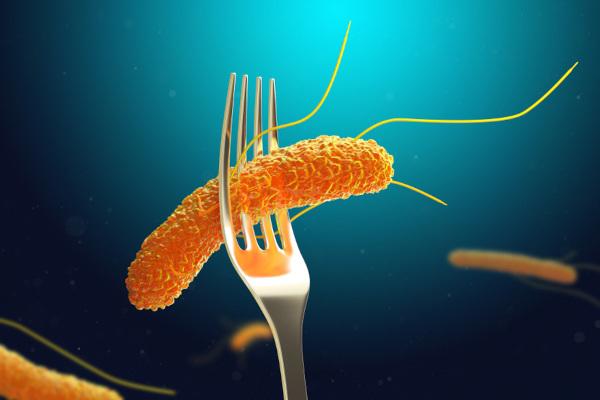Food poisoning is a health problem triggered by the ingestion of contaminated food, which may contain microorganisms such as virus or bacteria, and even toxins produced by these organisms or chemicals. To avoid this problem, we must choose where we eat, noting details such as how the establishments refrigerate products and the hygiene of these places.
It is noteworthy that, according to the Health Blog, of the Ministry of Health, "most of the contaminations food occurs in households as a result of hygienic failures in handling and preserving foods". Therefore, it is important to know well where we are going to eat outside the home, but never forgetting to take care of the food when we are preparing it.
Read too: Importance of washing your hands
Definition of food poisoning
According to the Ministry of Health's Integrated Manual for the Prevention and Control of Foodborne Diseases, food poisoning can be defined as:
“[…] disease produced by eating foods that contain toxins naturally formed in plant or animal tissues, or metabolic products of microorganisms or by chemical substances or physical contaminants that are accidentally or intentionally incorporated into them at any time, from their origin, production to the consumption."
Causes of food poisoning

Food poisoning presents varied causes, since different microorganisms and toxins can contaminate a food. Among the most common contaminants, we can mention fungi (and their toxic metabolites) and bacteria. The latter are responsible for most cases of food poisoning. We can't also forget that Chemicals they can contaminate food, triggering a picture of intoxication.
Food Poisoning Symptoms
Food poisoning mainly triggers gastrointestinal symptoms, such as atuse it, vomit, diarrhea, stomach pain and colic. Intoxications can also cause: headache and fever. In more severe cases, dehydration and elimination of blood in urine and faeces.
It is noteworthy that symptoms vary according to the agent that contaminated the food. While some poisonings can resolve quickly, others can complicateif, even being observed injuries in the kidneys, liver and neurological disorders. Food poisoning, contrary to what many people think, can lead to death.
Read too: The danger of superbugs
Treatment of food poisoning

It is important to highlight that there is no specific treatment for food poisoning, as its causes are varied. Basically the treatment is aimed at control symptoms and avoid complications. As the disease usually causes diarrhea and vomiting, one of the key points is to ensure the hydration of the patient with serum and drinking too much fluid. In some cases, intravenous hydration is necessary.
Read too: Dehydration - symptoms, signs, types, treatments
Food Poisoning Prevention Tips
To prevent food poisoning, we must be aware of our diet both outside the home and inside it, always worrying about proper storage and hygiene during the preparation and consumption of foods. Here are some tips to avoid food poisoning:
Do not eat foods that have a color or odor different from the original;
Always wash your hands before preparing food or eating;
Only drink treated, filtered or boiled water.
sanitize fruits, vegetables, vegetables and vegetables using sodium hypochlorite;
Consume pasteurized or boiled milk;
Cooking or roasting meat well;
Avoid eating raw or lightly cooked eggs;
Avoid buying food of animal origin in places where the origin of the products is unknown;
Always check the expiration date of food;
Properly pack perishable foods, paying attention to the appropriate temperature for the conservation of each food;
Before preparing food, properly sanitize where it will be prepared;
When preparing food, use different utensils to handle cooked and raw items separately;
After eating, do not leave food exposed, always remembering to cool leftovers;
Protect food from contact with animals such as insects and rodents;
When eating outside the home, one must be aware that the place follows the hygiene rules and that the food is properly packaged.
By Vanessa Sardinha dos Santos
Biology teacher
Source: Brazil School - https://brasilescola.uol.com.br/saude/intoxicacao-alimentar.htm

